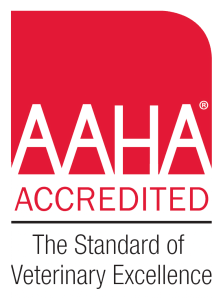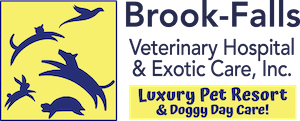Most people think of bleach or rat poison when they think of household toxins. If that’s you, you’re right. Yet, many other less obvious items could pose a hazard. Take sugar-free gum for instance. Did you know that it contains xylitol (AKA Birch Sugar), which can cause liver failure in your dog? The popular sugar substitute is also in certain brands of toothpaste, peanut butter, and sweetener packets for coffee and tea. Yet, it can be deadly to your pets. And that’s just one of the dozens of poisonous products your pets may encounter on a typical day. The fact is our homes are filled with products that are not meant to be eaten, or that are safe for humans but dangerous for dogs and cats. Xylitol and chocolate are great examples. There are even common houseplants that can be dangerous if ingested.
5 Everyday Products Poisonous to Dogs and Cats
As you can see, there are lots of common products that can be dangerous to your dog or cat. Here’s a shortlist of things to evaluate, especially if you have a curious pet.
1. Bleach and Other Household Cleaning Products - Many of these products can cause renal failure and even death if your pet drinks them. It’s a good idea to keep them behind a locked door to prevent prying paws.
2. Anti-freeze – Believed to have a sweet taste, this common substance is also dangerous if ingested. As with any cleaning product, it’s a good idea to keep it locked up and out of reach of curious animals.
3. Rodent or Bug Poison (or Spray) – Ant traps, bug spray, rat poison, rodents who have ingested poison: each of these poses dangers to your pet and you’ll want to keep them securely stored out of pet reach.
4. Certain Foods– Chocolate isn’t the only common food item that’s dangerous to dogs and cats. Onions, garlic, macadamia nuts, grapes, and raisins can cause vomiting, severe gastrointestinal problems, or organ failure. ASPCA Animal Poison Control lists even more toxic foods here.
5. Plants – There are hundreds of common houseplants that can be toxic if eaten. Azaleas, tulips, sago palms, and more are featured on ASPCA Pet Poison Control's list of poisonous plants. Even certain types of mulch (like so-called “chocolate mulch”) can be a problem for dogs.
Everyday Products Poisonous to Birds
1. Heavy metals (especially lead, zinc, and copper)- Metal can be found in paint, linoleum, soldering, wire, zippers, twist ties, and many other objects which birds like to chew. When ingested in large enough quantities, these metals can cause vomiting, mal-digestion, or even neurologic signs such as imbalance or clenched toes, or even seizures.
2. Certain Foods-- Chocolate can cause vomiting and diarrhea as well as an increased heart rate, leading to hyperactivity, tremors, seizures, and potentially even death. Onions can cause anemia. Onions can also irritate a bird’s mouth, esophagus, and crop which may also lead to ulcers. Garlic can cause anemia, so it is best to keep spices out of their food altogether. Too much salt can upset a bird’s electrolyte balance leading to excessive thirst, dehydration, kidney dysfunction, and even death. It is best to avoid foods containing salt or fat. Avocados can be toxic to some bird species. Apples and Pear seeds should never be offered to birds as well as pits from cherries, apricots, peaches, nectarines, and plums because they contain small amounts of cardio-toxic cyanide.
3. Drinks that contain caffeine or xylitol(AKA Birch Bark sugar)—Caffeinated drinks such as coffee, tea, and soda are extremely hazardous causing increased heart rate, arrhythmias, hyperactivity, and even cardiac arrest. Xylitol is being used in both foods and drinks listed as Birch Bark Sugar and can be poisonous. It is safest to stick to water
4. Smoke and other aerosols—Birds are extremely sensitive to smoke and aerosols. Spray cleaners, hair spray, perfumes, incense, and even candles fumes can irritate a birds’ lungs and air sacs. These products should never be used around birds, but if they are accidentally exposed to them, they should be moved to a well-ventilated area immediately and monitored for normal breathing rates and effort. If the exposed avian does not have a normal breathing rate or effort, seek veterinary care immediately!
5. Teflon—nonstick cookware when heated to very high temperatures can emit microscopic vapors that when inhaled can cause instant death. Nonstick cookware, nonstick coated appliances, including some stoves that have a self-cleaning oven feature and toasters should not be used in homes that contain birds. Most birds exposed to the fumes from these products die quickly without any signs. Just say no to nonstick if you have a feathered friend living in your house.
What Can You Do About It?
As you can see, many everyday items can be problematic to your pets. The key is to pet-proof your home, especially if you’re bringing home a new animal. Store all medications, cleaning products, and chemicals in secure cabinets or other locations. And don't forget to simply keep your pets away from certain foods and plants. In some cases, young or “new-to-you” pets may be most at risk because they’re curious and tend to taste everything. But even older cats and dogs have been known to do things like eating a pack of sugarless gum from your purse. To play it safe, keep purses and bags away from your pets, and at least once a year, re-evaluate your home and garage for safety. Has anything been left within reach of Max? If so, put it away.
If you do have a situation where your pet ingests toxins, call your veterinarian right away and they can advise you on what to do next. You can also contact the ASPCA Animal Poison Control Center (APCC) hotline at (888) 426-4435 or the Pet Poison Helpline at (855) 764-7661.
When did you last evaluate your home for potential pet dangers? Now is the time!


